- Home
- Taylor Caldwell
The Late Clara Beame Page 4
The Late Clara Beame Read online
Page 4
Laura came in, smiling like a carefree child again, and Henry Frazier followed her with their guest. Both men looked cold, and their faces were red.
“Well, well, kiddies,” Henry said, shaking hands with David and lightly kissing Alice’s cheek. “As beautiful as ever,” he told Alice, and patted her shoulder. “Alice, this is John Carr, a client of mine. Mrs. Bulowe, John. And this is Alice’s brother, Dr. David Gates.”
How easily he does everything, Laura thought proudly.
She looked at John Carr with interest, judging him to be about thirty-six. Quite good-looking, he was very lean. He had a wide, thin mouth and charming smile. His gray tweed suit did not fit him perfectly, but he was unaware of that, and in a way, it added to his charm.
“From Baltimore?” David asked, scrutinizing the stranger in that intent manner of his. “I know some Carrs, in Baltimore. The Bentwood Carrs. Related?”
“No,” John replied. He had a deep, pleasant voice with a slight trace of a Southern accent. “Sorry. Do you know the Bridges?”
“No,” David answered.
“Let’s have some drinks,” Henry suggested affably, turning to the portable bar with its array of glasses and bottles. “What’ll you have, John? I see these people didn’t wait for us; they’ve been slopping martinis on the sly.”
“Bourbon. I’m expected to like bourbon, and I do.” He turned to Alice, who was watching him closely. Laura was surprised to see her smile easily, and she was relieved. Alice seemed interested in the stranger and would be agreeable, thank heaven. Gratefully, Laura turned to him, then stopped, her dark eyes opening wide in surprise.
“I’ve seen you somewhere, Mr. Carr,” she stated. “I’m sure of it. Haven’t we met before?”
He studied her thoughtfully, his head cocked slightly. He said at last: “No, I don’t think so. Do we know anyone in Baltimore, in whose house we could have met, Mrs. Frazier?”
“I’ve never been in Baltimore,” his hostess told him.
“And do call me Laura. Perhaps we met at mutual friends’ in New York? No? Boston? Philadelphia?” She burst out laughing. “On a plane, somewhere! That must be it!”
“Yes, that must be it,” John agreed, taking his glass from Henry’s hand. “You meet everybody on planes, don’t you?” He found Laura very pretty, but compared with Alice Bulowe she was nothing at all. He turned to Alice. “Have you seen me somewhere before, too, Mrs. Bulowe? On a plane?”
“No. And please call me Alice. If this storm keeps on, and I know these New England storms, we’ll be snowbound together until spring.” Alice’s voice had taken on warmth, even a little liveliness. Laura almost forgot that she had felt the force of Alice’s hatred only a few moments before in this very room. How nice it would be if something came of these days for Alice.
“Coming down to it, you do look familiar, all at once,” Henry remarked, studying his guest intently. “Or perhaps it is the power of suggestion. I didn’t notice it before. Now, who do you look like, that I know?”
“Everybody looks like everyone of his own generation, these days.” David smiled cynically. “The organization man; faceless; cut out of the same pattern. Look at us three. Suggestion of crewcut; big, healthy, open faces; absolutely expressionless. We’re only allowed two expressions these days. Outgoing interest. Smiles, with lots of teeth. It used to be that men didn’t resemble each other. Now we do. I bet if we were all murdered, and had only our teeth to identify us, not a single dentist could do the job. ‘Look, Ma, no cavities!’ ”
“David,” Alice chided. But she was smiling.
“It’s true,” David went on, after a swallow of his drink. “Look at Hank, here. Outdoor type, though his contact with the outdoors is limited to going back and forth to the station, in all seasons. Sunlamp for that healthy effect. Look at me. I blink in sunlight. My sunglasses, on bright days, are no affectation, friends. Yet, I’m suntanned, and how I got that way I don’t know. How about you — John?”
“The same,” John Carr agreed. His gray eyes were sparkling with amusement.
“I don’t think we look alike,” Henry remarked. Laura was surprised because he sounded annoyed. “Except in our minds. We are conformists these days, aren’t we? But it’s a complex world.”
“Being complex, the people who inhabit it should be more of a variety,” David stated. He filled his glass again. “A complex world is a challenge. We shouldn’t melt down in its face like a lot of candles. But we do. There was a time when we could tell a man’s occupation just by looking at him, no matter how he was dressed. But could anyone say the same of us?”
“I think so,” Henry said.
“Well, say you don’t know me, and have never met me,” David went on. “What would you say was my occupation?” He spread out his hands. “No calluses. When I walk I have that bold stride we’re always affecting; makes us look like ads in a man’s magazine. Alert, that’s us. Eager, that’s us. Interested, that’s us. Twentieth-century man, the living and breathing robot, moving to a tune played by sinister men who prefer us to be of one type. We won’t cause them any trouble that way. We won’t be a burden on mental health facilities. Why, damn it, we’ve got to be of one type or we’re ‘sick, sick, sick’.”
“Same old tune, yourself.” Henry smiled at John Carr. “Don’t mind old Dave. He was always a nonconformist, even when we were kids. If everybody asked for strawberry ice cream he’d ask for something exotic, just for spite. Once he demanded pistachio, got it, and couldn’t eat it.”
“At least I made a try, which is more than the rest of you ever did, or do,” David retorted.
Laura thought with dismay, “He’s taken a dislike to John Carr.” The coming days were taking on a distinctly dreary look. But John Carr continued to be amused. “I’m right with you,” he said. “I’ve always disliked strawberry ice cream, and that’s literally and figuratively. America’s now one big, sunny, dripping, sweet ice cream cone, and somebody planned it that way, and if I could find out who, I’d wring his or their necks.”
David’s smile became more amiable. “When you find out, let me know and I’ll help you. And if that be treason, as Patrick Henry said, make the most of it. Laura’s been telling us you’re going into the advertising business. May I ask why?”
“I like it. It’s one of the lively arts, even if you don’t think so. It’s very interesting. Guessing, or molding, the public taste is as exciting as a horse race, sometimes. You won’t believe it, but I bet it’s as interesting as electrocardiograms. The graphs are frequently the same.”
“Pulses,” David said sarcastically.
“Exactly. Why, through the advertising business you can find out if the buying public has stenosis of the pocketbook, or a thrombosis in the paycheck, or a block in the wages.”
“Just full of romance and heartbeats,” David said.
John nodded. He glanced at Alice. She was listening with great interest. “Henry was telling me you do commercial art, Mrs. Bulowe. Free-lancing?”
“Yes,” she answered, and Laura hardly recognized her animated voice. “The cup running over one month and not even dregs the next. But I prefer it that way. I’d die of boredom on a salary.”
“So should I,” John agreed. “I’ve been on salary. Now, I’m going to live dangerously. In short, I’ll get a share of the profits, if there are any profits.”
“There will be,” Henry told him. “Rogers and Belton are a fine concern. One of the best.”
“But they’re not a matter of life or death,” David pointed out. He was refilling his glass again, Laura noticed. “People can’t live very well without doctors,” David continued. “I’ll always be in demand.”
John, who was standing near the fire, beside Henry, turned his profile to Laura, and once again she was startled by the fact that she had met him, somewhere! She could almost say
where and when. A long time ago. But that was ridiculous. Feeling her stare, John turned towards her, and she caught her breath. His eyes. He regarded her thoughtfully, and frowned, as if he were suddenly disturbed.
“We have met!” she blurted out. “You know that, too, don’t you, John?”
Everyone looked at her, and she blushed, but she held John’s eyes almost defiantly. “Why should there be such a mystery about it, anyway?”
“I’m not unusual-looking, Laura,” he answered easily. The frown, however, returned. “In fact, I’m a very ordinary-looking guy. You see thousands just like me on the streets of every city. Faceless, as Dave here has said.”
It was not like Laura to be persistent, but she went on: “No. We’ve met somewhere. I don’t forget faces. That’s one of my few talents.”
She knew she was making a fool of herself. Henry was embarrassed; she could tell by the way he sipped rapidly at his drink. And then, in the silence, she saw David and John Carr exchange a swift glance. It was like a flash between them, an alert signal. They knew each other! She was positive of it. Feeling the silence growing heavier, she spoke in a higher voice: “I know you all think I’m silly, or something. But I do remember faces. Alice. David. Haven’t you seen John Carr somewhere before?”
“Not I,” Alice said, her voice expressing her distaste for Laura’s outburst.
“David?”
“Well, Laura, as our friend has said, you’ll see thousands just like him, and us, on every street in any city. The molded-plastic type. Almost invisible.”
“Laura,” Henry cautioned her in a low voice, and she blushed again. I’m embarrassing him, she thought miserably.
“Please forgive me,” she apologized. “I probably know someone who looks like John. Dinner’s ready. I hear Edith banging the bell very hard.”
Chapter 4
They could hear the storm during Mrs. Daley’s excellent dinner, but Laura was, in spite of her uneasiness, pleased that Alice appeared to be enjoying the roast beef and red wine. Alice’s interest in John Carr seemed to be increasing and although she had never exhibited any particular fondness for Henry before, smiled at him occasionally and even told a joke which had ribald overtones.
John sat at Laura’s right. She couldn’t help wondering why he was lying about their having met. And, he knew David. She couldn’t forget the sharp glance they had exchanged.
She tried to become interested in the conversation. Alice was speaking, controlled and precise. “I have to go to publishers’ cocktail parties. You have no idea how weird writers are, John.”
“I went to one, once,” John told them. “About three years ago. I never knew that so many people could be jammed into one place at one time. You couldn’t lift your arm to drink. You won’t believe it, but I found myself drinking out of someone else’s glass. Hundreds of people. But the lady writer was the prettiest thing I’ve ever seen, almost. They gave away enamel cigarette cases with her profile on them. What did she write, that sold so fabulously?”
“I know!” Alice exclaimed. “Hidden Secret! That was Janice Entrett. Were you really there? David and I were, too.” She turned to Laura. “And so were you and Henry. Don’t you remember?”
Laura was relieved, and laughed delightedly. “So, John, that’s where we met!”
“We couldn’t have,” John said, shaking his head solemnly. “Nobody met anybody. It was just a mob scene.”
“We were there, all right,” Henry said, critically examining a slice of meat meant for David. “I wore my best gray flannel suit, and the sleeve was ripped out. Sam was there, too. How did we all get to be invited, anyway?”
Alice was serious now. “I’d sent a sketch for a book jacket, to my agent in New York. It was a prize contest. I’d given up my profession, if you’ll be kind enough to call it that, when Sam and I were married, and we moved to Chicago. But then I saw the notice about the book jacket in the New York Times. I had nothing to lose, so I designed one. There was a synopsis, very coy, about the book, and its fascinating heroine. Jade, I think she was called. I sent my entry, and though it didn’t get the first prize, it did get the second. Two hundred dollars. And an invitation to meet the adorable author, Janice Entrett, all expenses paid for two in New York, for three days. There was a lot of publicity. Sam insisted we accept, and we did.” Alice looked down at her plate, remembering. “He was so happy and excited.”
Laura found herself thinking, “I’ve never given much thought to whether or not Alice loved Sam. But, of course, she did.”
“I still have the cigarette case, somewhere,” John told them.
“What were you doing there?” Alice asked him.
“Well, a friend of mine had an invitation, and he took me along. I wanted to see the sweet uses of publicity at first hand, just to see if I’d like it. I did.”
“Too bad,” David said. “What was your racket before advertising?”
“You wouldn’t believe it, considering that I was graduated from the Harvard School of Business Administration, but I sold race horses.”
“Oh, no!” Laura was enchanted. “I thought only Hollywood Southerners did that, in the movies.”
“Sometimes Hollywood isn’t too far off,” John smiled at her over his wine glass. “I honestly did sell race horses. My own, in fact. Nothing on a big scale. Not the kind that make the big derbys; just the harness races. Nice, jogging, half-witted horses, with absolutely no character. I felt like a murderer. I have a soft heart. I knew where they’d finally end up. But dogs have to eat, too.”
“No more meat for me,” Alice said, laughing. “Not after that.”
“It took me all over the country. I know every hamlet, village, town and city in the hinterlands.”
“Where was your farm?” Henry wanted to know.
“You won’t believe this either,” John answered. “It was in Maine. Not far from Portland. And had a mortgage as big as a house. I finally sold it just to get rid of the mortgage. It had the original name of Horse Fair.”
“What were you doing so far from Baltimore?” David inquired.
John sighed. “I know you’ll think I’m making this up, but I won the horse farm at poker. After I came out of the Navy. Or, rather, the very day I was demobilized. The captain owned it, and I won it from him. I’ve had an eventful life.”
“Wonderful as a background for the advertising business,” David added.
At that moment the lights blinked on and off, and then went off with a complete finality. Only the candles illuminated the big, walnut-paneled dining room, and glimmered on the old tapestry that hung over the immense mahogany buffet. As if by prearranged signal, the thundering of the storm came closer, and the rumbling furnaces halted. There were annoyed cries from the kitchen.
“That does it,” Henry told them. “We’ve had it.”
“Just like old times,” Alice said. “We’ll probably be living in blankets for days now. Not only that, but we’ll be snowbound. This house is three miles from the main road, on its own private road. Do you still have a plow, Hank?”
“Yes, but it’s not big enough to do a three-mile job. Don’t worry, Alice. We have freezers. . . .” He stopped. “I forgot. The freezers will be off, too. There’s nothing for it but that Evelyn and I will have to take up a lot of the meat and things and put them in the woodshed. No later than tomorrow morning. Any volunteers?”
“You mean this can go on for days?” John Carr sounded surprised. “No electricity?”
“It went on for two weeks one time,” Alice said. “You remember, Laura. But we weren’t so dependent on the utilities as we are now.”
“Alice is teasing you.” Laura smiled at John’s dismay. “Just as soon as the storm stops, the electricity people will be out putting up the lines again. After all, we don’t live too far from the village. Henry, don’t you think
you should call?”
“I will.” He went into the hall to telephone.
“You never did put in an auxiliary system, did you,” Alice pointed out accusingly.
“Well, no. It didn’t seem necessary. This is the first time the lines have been down for a long while. They always got around to putting them up again, usually in just a few hours. It isn’t as it was when we were children, Alice.”
Henry returned gloomily. “I should have thought about it. The phone’s gone, too.”
“Yes, indeed,” Alice reiterated. “It isn’t as it was when we were children.”
Her rudeness caused a sudden hiatus in the dining room. The words had been nothing, but the tone had been contemptuous and insulting. Laura rose. “Let’s have our coffee in the living room.” She hurried out, and Henry, raising his eyebrows, followed with Alice.
David and John Carr found themselves alone. “That was close,” David muttered.
“Not too close. It was a good thing I was at that damned party, though,” John said. “But let’s be more careful; keep it impersonal. He’ll check, of course. He’s that kind. All lawyers are.”
“Alice came in at just the right time, almost as if she had been coached,” David recalled. “I thought of letting her in on all this, but it’s better if she doesn’t know about you. As for Frazier, the phone’s down, and he’s not going any place.”
“Which adds complications,” John Carr commented. “Because neither are we.”
Later, when they were in their bedroom, Henry said to Laura: “It wasn’t like you, honey, to be so persistent about having seen that Carr somewhere before. You almost called him a liar when he said he’d never met you.”
“I don’t like mysteries, darling, and there didn’t seem to be any reason why he should refuse to acknowledge we’d met. But it’s all settled now. We met him at that party, in spite of the crush. I never forget a face.”

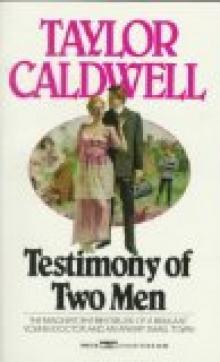 Testimony of Two Men
Testimony of Two Men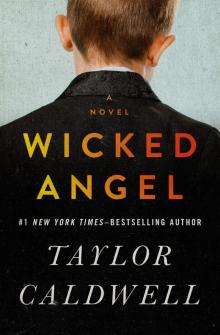 Wicked Angel
Wicked Angel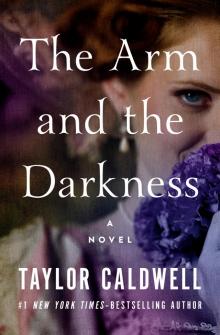 The Arm and the Darkness
The Arm and the Darkness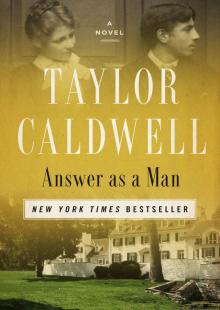 Answer as a Man
Answer as a Man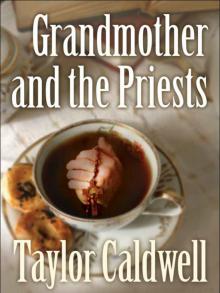 Grandmother and the Priests
Grandmother and the Priests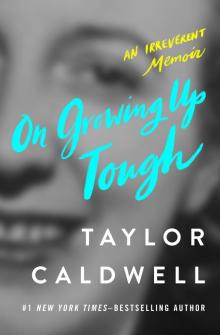 On Growing Up Tough: An Irreverent Memoir
On Growing Up Tough: An Irreverent Memoir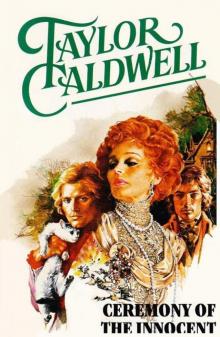 Ceremony of the Innocent
Ceremony of the Innocent The Listener
The Listener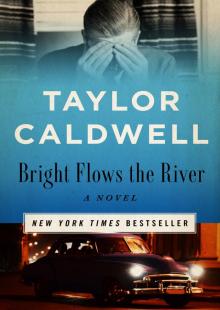 Bright Flows the River
Bright Flows the River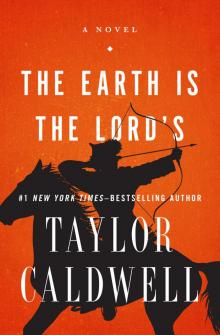 The Earth Is the Lord's
The Earth Is the Lord's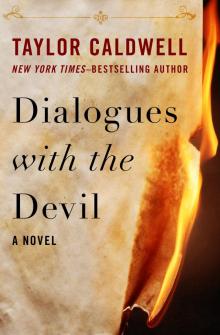 Dialogues With the Devil
Dialogues With the Devil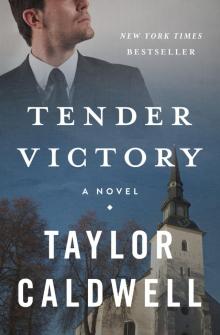 A Tender Victory
A Tender Victory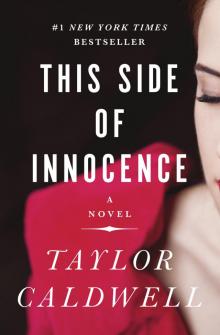 This Side of Innocence
This Side of Innocence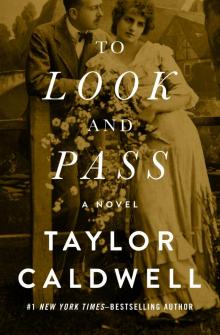 To Look and Pass
To Look and Pass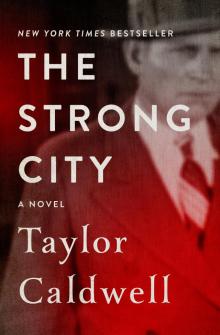 The Strong City
The Strong City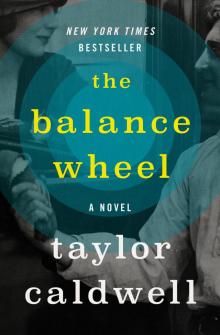 Balance Wheel
Balance Wheel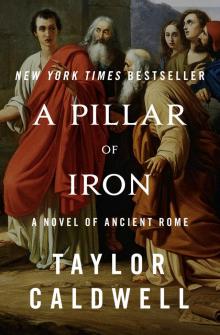 A Pillar of Iron: A Novel of Ancient Rome
A Pillar of Iron: A Novel of Ancient Rome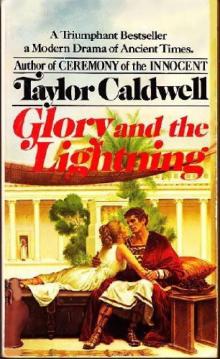 Glory and the Lightning
Glory and the Lightning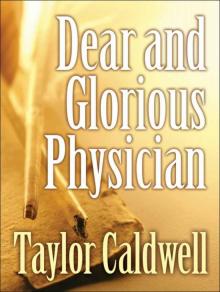 Dear and Glorious Physician
Dear and Glorious Physician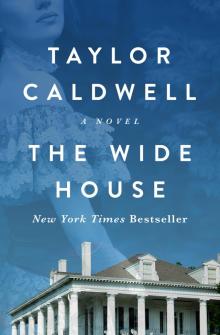 The Wide House
The Wide House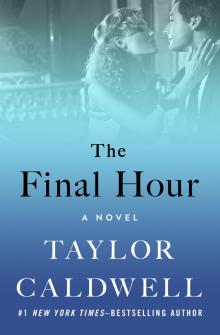 The Final Hour
The Final Hour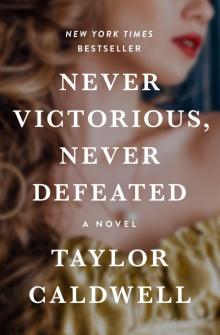 Never Victorious, Never Defeated
Never Victorious, Never Defeated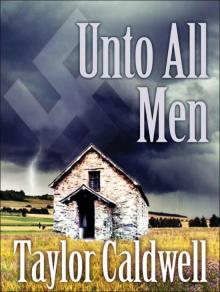 Unto All Men
Unto All Men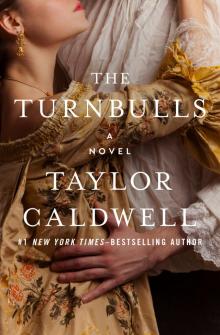 The Turnbulls
The Turnbulls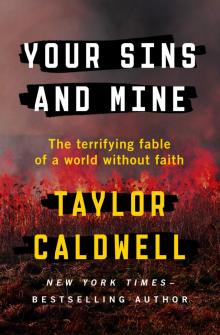 Your Sins and Mine: The Terrifying Fable of a World Without Faith
Your Sins and Mine: The Terrifying Fable of a World Without Faith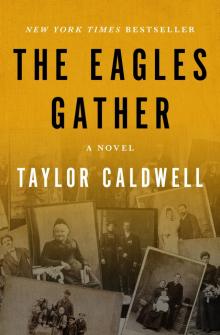 The Eagles Gather
The Eagles Gather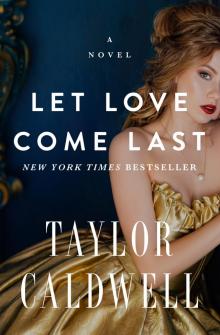 Let Love Come Last
Let Love Come Last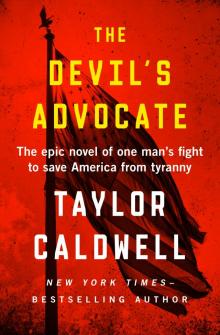 The Devil's Advocate: The Epic Novel of One Man's Fight to Save America From Tyranny
The Devil's Advocate: The Epic Novel of One Man's Fight to Save America From Tyranny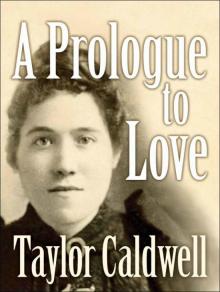 A Prologue to Love
A Prologue to Love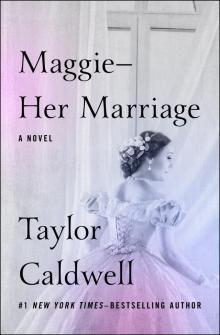 Maggie: Her Marriage
Maggie: Her Marriage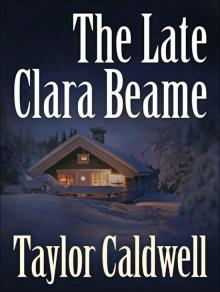 The Late Clara Beame
The Late Clara Beame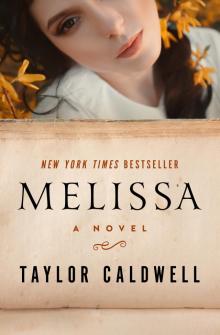 Melissa
Melissa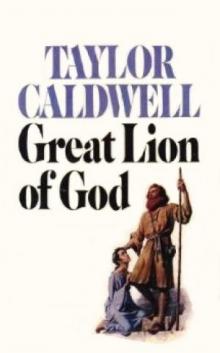 Great Lion of God
Great Lion of God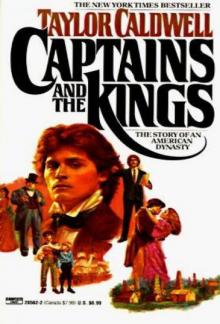 Captains and the Kings
Captains and the Kings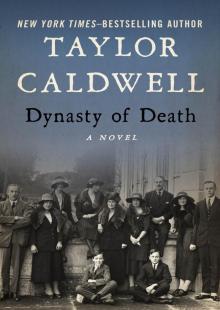 Dynasty of Death
Dynasty of Death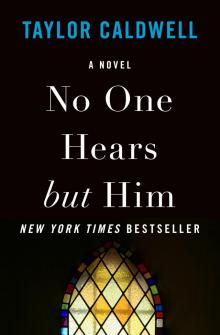 No One Hears but Him
No One Hears but Him The Sound of Thunder
The Sound of Thunder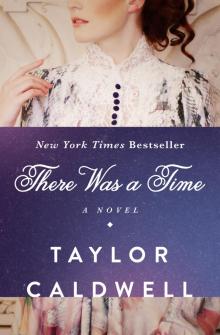 There Was a Time
There Was a Time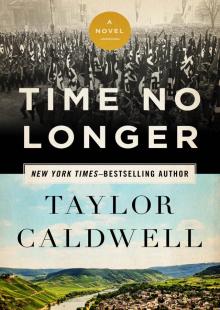 Time No Longer
Time No Longer I, Judas
I, Judas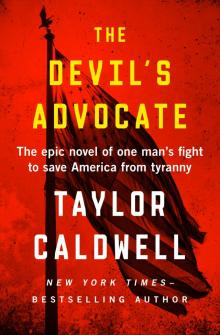 The Devil's Advocate
The Devil's Advocate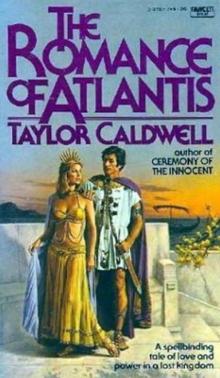 The Romance of Atlantis
The Romance of Atlantis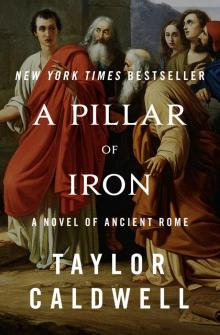 A Pillar of Iron
A Pillar of Iron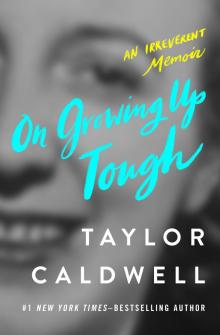 On Growing Up Tough
On Growing Up Tough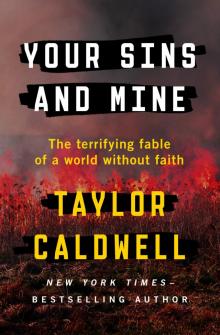 Your Sins and Mine
Your Sins and Mine